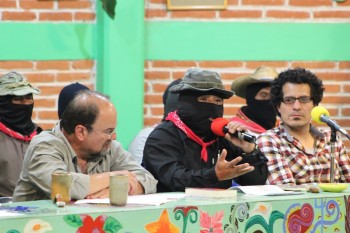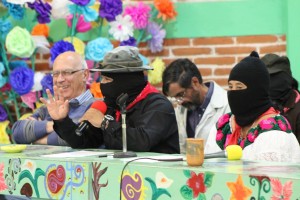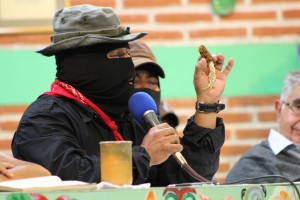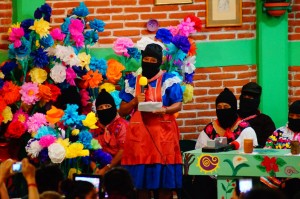Resistance and Rebellion II. Words of Subcomandante Insurgente Moises. May 7, 2015
Words by Subcomandante Insurgente Moisés

May 7, 2015 (evening session)
Good evening, compañeros, compañeras, brothers and sisters.
It seems like a splash of cold water on our faces was indeed what we needed, because now we are definitely getting some thought-provoking ideas.
So we will need to translate this from Spanish to Tzeltal, Tojolabal, Tzotzil, and Chol, and from there a joint response will arise, because there are some things proposed by the compañeros at this table that we are interested in discussing.
We continue with our words of explanation and discussion on what resistance and rebellion mean to us as Zapatistas.
For us, as an organization that resists and struggles in rebellion, we first need to be clear on why one would resist and rebel. If we are not clear on the “Why?” the “For what?” and the “From what?” we simply cannot go forward.








